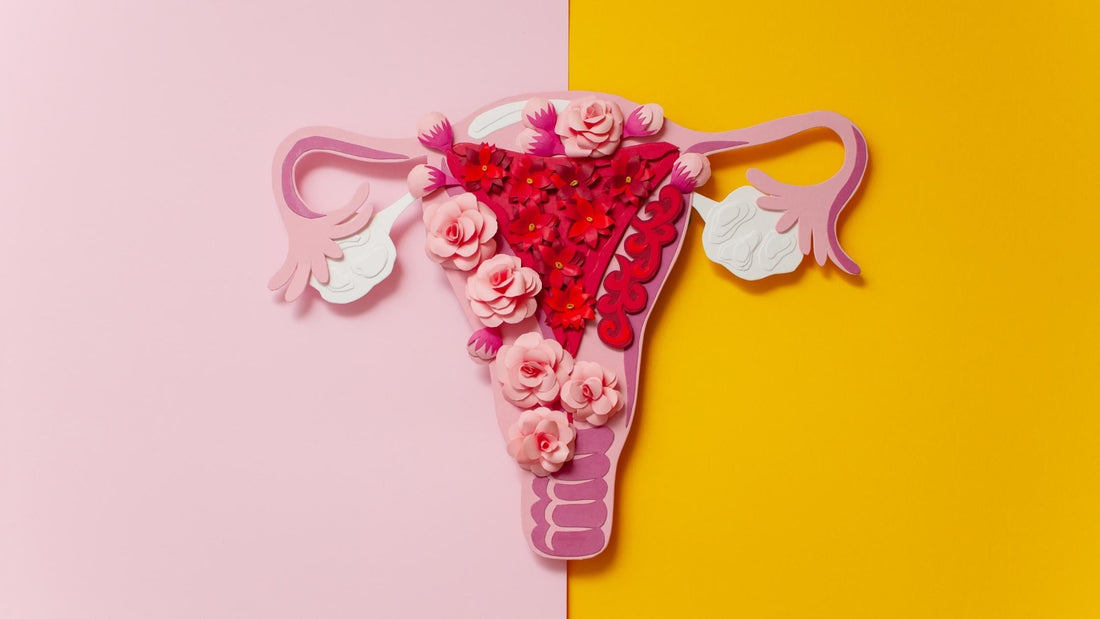
Polycystic Ovarian Syndrome (PCOS) is a complex disorder which is brought on by an unhealthy diet and lifestyle, environmental factors and genetics. PCOS is the most common endocrine disturbance affecting young women today.
Some common symptoms are absent, infrequent, irregular or prolonged menstrual periods, menstrual pain, ovarian cysts, fatigue, mood swings, obesity, miscarriage, headaches, excessive hair growth, darkening of the folds of the skin, acne, depression and anxiety. If left untreated, PCOS can develop into more serious disorders such as metabolic syndrome, diabetes, cardiovascular disorders and infertility.
Modern medicine’s treatment for PCOS mainly focuses on drug therapy to change hormonal balance. While this can bring some relief, it does not address the underlying causes and imbalance.
Fortunately, Ayurveda offers a variety of treatments and protocols to correct the imbalances which cause PCOS and offers the knowledge you need to regain good health. Although there is no one protocol that fits all women, there are many things you can benefit from by paying attention to what you eat and do on a day to day basis.
Let us explore some of the areas that you can change for the better.
An important area to be diligent with is paying attention to what you put on and into your body that may contribute to your symptoms. Constant exposure to common and ubiquitous unhealthy substances are correlated with many hormonal dysfunctions including PCOS, obesity, sterility and more. Xenoestrogens, which are synthetic endocrine disruptors are harmful substances found in food, water and many common products which disrupt the delicate hormonal system balance. We are constantly exposed to these endocrine disruptors through pesticides, herbicides, plastics, BPA, insecticides, dioxin, fire retardants, heavy metals, non-stick cookware, cleaning products, wall paint, body care products, cosmetics and fuel. The more we avoid these endocrine disruptors, the quicker our recovery will be.
This is a vast subject and may seem overwhelming at first. Start with one area to focus on at a time and build on that. For instance, you might begin by choosing to eat a more organic diet or to at least reduce your chemical exposure. EWG.org is an excellent website to check and learn about which foods are relatively safe to eat if they are not organic, and which types to totally avoid.
Once you have a start on your grocery shopping, you can start to pay attention to your cosmetics and body care products. Simply switching your shampoo to something less harmful can have a big impact, and when you make multiple changes, you will be on your way to feeling better. EWG.org is very helpful in identifying which products are harmless and which to avoid. This area extends to what types of cleaning products you use, what laundry soap, what dish soap - everything should be considered.
Next, pay attention to your lifestyle. Are you constantly burning the candle at both ends? Are you frequently surfing the internet? Are you eating on the run? Missing exercise workouts routinely? Are you getting enough sleep? Having a healthy and regular routine will have a very powerful impact on your overall health.
Ayurveda offers us many effective herbal remedies to help the imbalance that is the cause of PCOS. Let’s look at a few:
Triphaladi Churnam: Triphala is a gentle cleansing combination of three fruits which can be taken on a daily basis (with some exceptions - do no take triphala while menstruating or when pregnant). Reducing our toxic load is an important step towards regaining great health.
Ashoka Arishtam: Balancing all three doshas, Ashoka Arishtam is a favorite uterine and digestive tonic that reduces pain caused by PCOS. It addresses hormonal imbalance, decreases uterine cysts and reduces heavy menstrual bleeding. Ashoka is also antioxidant and immune boosting.
Chandraprabha Vatika: is a tonic for the reproductive system and acts as a muscle relaxant due its anti-spasmodic action. It can help correct hormonal imbalance and helps regulate the menstrual cycle. Chandraprabha Vati is especially helpful when used in combination with Ashoka Arishtam.
Kanchanara Guggulu: is a very effective remedy for hormonal balance, is an anti-inflammatory and helps shrink the size of cysts while also reducing pain.
Sukumara Ghritam: is very useful for reducing vata based cysts. It addresses lower abdominal pain, supports balanced hormonal levels and helps maintain a healthy menstrual cycle. Sukumara Ghritam also helps maintain regular elimination.
Sukumaram Kwatham: is useful for helping to reduce severe pain during menstruation, while also supporting healthy digestion and elimination by balancing vata dosha. Sukumara kwatham is useful for shortening the period cycle and regulating delayed periods.
PCOS manifests when all three doshas are out of balance. You didn’t get to this point overnight and it will take some work to regain your health. But don’t worry - every little bit of effort in the right direction will bring you closer to your goal. Your body already has so much within to heal itself if you give it what it needs - good food, good attitude, good exercise, good rest. Where can you make improvements? Every little adjustment you make in your life will make a cumulative gain to your health.
Some people like to work on changing everything at once, and others need to take it one little step at a time. Whichever way is yours is fine: what is important is to make these changes in a way you can maintain them, so they become a part of your life.
Ayurveda attempts to heal the root imbalance rather than placate the symptoms. Because PCOS is a complex disease process, there is certainly not a one size fits all approach to healing. An in-depth assessment and an individualized plan of care is necessary for identifying your particular imbalances and what changes are needed for your health.
For individualized recommendations for your own health concerns, arrange an Ayurvedic consultation at Balanced Life Ayurveda. I will help you learn how to change your life and routine and guide you on your path to healing.
Janet Shivani Chase is a NAMA certified Ayurvedic Practitioner who has been practicing yoga for over 40 years and Ayurveda for over 25 years. As the owner of Balanced Life Ayurveda, Shivani offers consultations, treatments, workshops and classes.
Disclaimer: These statements have not been evaluated by the Food and Drug Administration. Kottakkal Ayurveda products and this information is not intended for use in the diagnosis, treatment, cure, or prevention of any disease. If you have serious, acute, or chronic health problems, please consult a trained health professional. If you are seeking the medical advice of a trained Ayurvedic practitioner or doctor, call (800) 215-9934 or email us at contact@kottakkal.shop and we will provide you with one of our affiliated Ayurvedic professionals. Check with your doctor before taking herbs when pregnant.

